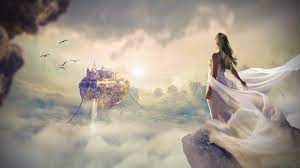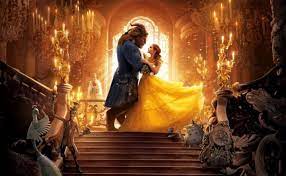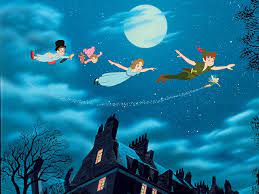Consciousness and health
The call of the supernatural
Abstract
There seems to be an efflorescence of fantasy in the collective consciousness in the twenty-first century, if we are to judge by the number of movies and stories that are being produced in this genre. Is this because the fantasy world is manifesting in the real world, or does it have simpler answers such as the power of marketing? This essay explores the popularity of fantasy and its world of occult realms, magic and other powers. It invites the reader to walk alongside the author as she ponders on why fantasy is so widespread in the collective consciousness now.
It seems to me, in my capacity as a humanities teacher, that the choice of books and movies millennials are reading and watching has changed a lot from the ones in the last decades of the last century. Dickens, Tolstoy and Salinger have bitten the dust. Heidi, Black Beauty, Anne of Green Gables, from the golden age of children’s literature, are seeing their sunset. Similarly, in cinema, realistic movies have lost their popularity for the new generation. In fine arts too, the artist’s taste has shifted from being a faithful imitator of nature to the creation of works that are difficult to appreciate with aesthetics alone. In contrast, the stories from all ages that played with fantasy, or something more than the mundane everyday experience, are re-surfacing. The gods of ancient Greece, Scandinavia and Egypt are reappearing in fast-paced thrillers. In India, the stories from the Purāṇas made into TV serials steal prime time. Enid Blyton’s Faraway Tree is still urging adventurous children to step across its hidden threshold. This world of mystery and fantasy is not just for children and young adults, but adults too are reconnecting with them in new ways.
Every culture has fairy tales; some stories are shared by many cultures, such as Peter Pan. Japanese anime is a world phenomenon, transcending language barriers and cultural norms. Disney has served the appetite for fantasy, starting with cartoons from the beginning of the film industry. Now in 3D, it is re-writing classics like Alice in Wonderland. Let us look at an example of how the modern age is re-mythologising a well-known fantasy. In the Disney movie, Wendy, it is continuing the legacy of eternal youth and adventure of Peter Pan, but after a re-vision. The movie imagines a modern-day Wendy growing up in a small town, helping her mother run a restaurant. She seems to have little prospects for growth. She stretches her fingers every night to catch a few stars while she waits for Peter Pan to show up for her.
Who is Peter Pan? The Greek nature god, Pan? Peter, Christ’s disciple who was building the kingdom of God within? Or the flying green pixie in James Barrie’s story? Peter Pan, the boy who would never grow up, is all these three, and more. He is the inner child, a friend of the soul, the part in us that remains curious and adventurous, that is wonder-struck at every turn and full of foolish bravery. The child hero is Peter Pan in us. Our awakened outer beings are Wendies, yearning for Peter Pan to come and rescue us from the mundane. Some of us have forgotten our Wendy self, some of us are re-discovering her, and some are always aware of her. As little Wendy in the movie says, “All children grow up. For most it just happens like a change in the weather. But some, the wild ones, the ones with the light in their eye, escape.”
And one day Wendy escapes, dragging her brothers along with her, because a little boy on a train has come to fetch her. This Peter Pan steals children from their beds and takes them to an island full of volcanoes and surprises. He looks just like any other child, does not seem to be able to fly or talk to fairies, but he holds the key to something else. He crosses over the threshold of the real world, and takes the children to an alternate world. When Wendy recognises the place, she tells us, “Remember the voice in your head? The one that said,‘Sneak away in the middle of the night.’ Here is the place it came from.”
Is it all fun and play on the island? No. Just like the Peter Pan story, there is Captain Hook and his crew of pirates eager to kidnap children and sacrifice them. These characters, as you can imagine, are all symbolic. Eternal youth has to fight the men who have lost youth, which means have lost hope, wonder and curiosity. A warning in the film says, “Beware children, you can leave yourself behind, you won’t even know when it happens.” The trick is to nurture the inner child as one grows and takes up responsibilities. It is not an escape into the fantasy world, as Wendy and the other children realise. They return to the adult world, and when they become parents, they are parents of a very different kind. They are okay if they lose their children to Peter Pan’s wonderland for a few years.
Is there a blossoming of the inner child again with the return of fantasy stories? Or is that why fantasies have returned — because the inner child was knocking on the closed door? The Lord of the Rings, was written some seventy years ago. But now it is becoming a world classic. Along with Harry Potter and the Chronicles of Narnia. It is not just the books that are being read, but the movies are perhaps the bigger reason behind their fame. A director has choices — to pick a realistic story or a fantasy. The viewer’s taste drives the director, and the director entices the viewer. They are a mutually influencing pair that have chosen fantasy over all other genres.
Or is it the escape that entices people? Why watch a social critique when you already know what’s wrong with your society? Why watch a crime thriller that will make you double-check your door and imagine footsteps in the dark? It is much more satisfying to escape into a world that is far removed from the one we inhabit — a dream-world we can conjure up with our own imagination or with computer graphics. We relive the childhood fascination for magic and the unknowable, for deep down we have a sense that reason is not king, that the laws of nature are not binding. We are not limited by natural or social rules. We are free. We defy gravity. We can pass through walls. Things talk to us. We can transmit thoughts. We are shapeshifters. Our landscapes change within seconds. There is a great thrill in seeing the reason trip, in being out of control, in exploring the unknown. And while we baffle the reason, we also transcend it.
But not everything is fantastic in the fantasy realm. It can dissociate us from the real world. Video games have been designed to keep us in these alternate worlds as long as possible. People get addicted to living in them. They form new relationships in these cyberspaces. It is possible these can make people stop caring about the real world and their family and friends. We get addicted to speed and to instant gratification. There is such a danger, but then living only in reality is also dangerous. It is bleak, our human nature is weak, what humans have done to Nature is sad. We have banished Pan to his island. If children believe in Santa Claus, we ask them to grow up. As if growing up means throwing away one’s belief in super-nature. It seems to me there is a fear around the occult. If one believed in ghosts, they’d come to haunt us. Otherwise they would not exist.
Underlying these fantasy worlds are rules that we are familiar with in our real world. In the fantasy stories the real world problems are worked out; and worked out really fast; perhaps too fast. Fast-moving action films such as Marvel movies and Star Wars can be addictive. They make us impatient of anything other than speed resolutions. Instant gratification has its own set of problems. But what makes us relate to these fantasy stories is that the foundation of these fantasy worlds is the same as ours. It is a battle of good versus evil. The good powers have siddhis of flying, of trapping with cobwebs, of metamorphosing, of controlling another’s mind and so on. The bad powers have matching evil powers. And so the battle goes on. Whether here or there. Whether within or without. And this is how we become heroes.
As we feel more and more limited in our real world, we choose the fantasy world to try out our powers. The real world offers no option for testing our heroism. So we test it in the other world, by living vicariously through a character we admire. The toy industry has caught on with small versions of Batman, Ironman, Superman, etc. There is such a plethora of fancy books and accessories, one wonders if it is the marketing that creates love for fantasy in the first place for certain people. Then there are the faithful followers. When their social media friends praise a book, or a bestseller list touts it, people fall for it.
This fantasy world punishes the stupid and slow, but also the selfish and the arrogant. In fact, one must be wary, for things shapeshift, and loyalties can also change. One must use one’s intuition rather than reason to negotiate the maze of relationships. Love, gratitude, kindness, are rewarded, just as they are in the real world. Greed, hatred, meanness, are punished. In this world justice seems to work better than in the real world. Something within feels more satisfied to live here than in the real world of moral corruption and rampant injustice.
Another reason I feel fantasies have gained prominence is that the time-spirit is favouring the supernatural worlds. Perhaps they are close at hand, ready to manifest. They are manifesting through artists who are open to imagination. Good and bad forces are seeking to real-ise themselves in language and images. Some people are lending their instruments to evil powers, some to the good. And the battle of the other realm is coming home in a new form. Some are falling in love with dystopias, which is concerning. But being closed to the fantasy world is also concerning. For I believe it exists. We visit them in our dreams and bring back much joy and beauty from them. We learn wisdom there. We experience things we would not in the real world. We expand ourselves. We become Supermen and Wonder Women in our imagination. And gradually with practice we will real-ise a new creation.
Lopa Mukherjee is a psychologist and educator. She conducts workshops and teaches culture, soft skills and related subjects. She lives in Pondicherry.
Share with us (Comments,contributions,opinions)
When reproducing this feature, please credit NAMAH,and give the byline. Please send us cuttings.





